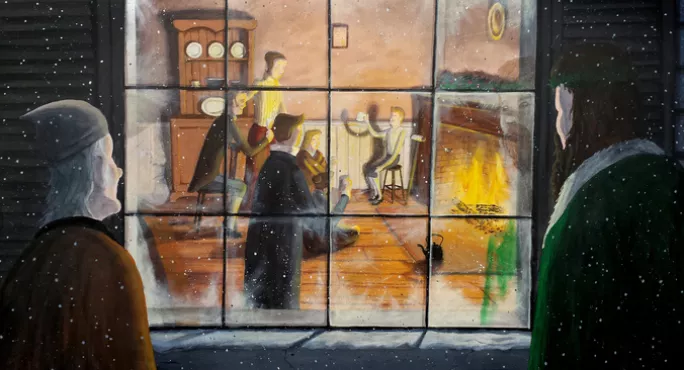- Home
- Meet the education ghosts of past, present and future
Meet the education ghosts of past, present and future

Just as Scrooge originally showed fear of what the spectres revealed to him, so too might teachers shudder at the trends and fashions of teaching past, present and future.
But in the spirit of the season, shouldn’t we be more reflective about what these shadows can reveal to us?
Quick read: The Greatest Showman? It’s the perfect teacher playlist
Quick listen: Understanding the psychology of bad behaviour
Want to know more? Nudge theory: how it could help your class
Let’s take a look at the ethereal fads that seem doomed to fade into the darkness.
Ghost of Teaching Past
Assessment for Learning (AfL) was once a central part of lesson planning but is now regarded by many to be as dead as a doornail.
The spirit of it lives on, however, through quality feedback, whether it is through multiple-choice questioning; WAGOLLs; DIRT activities or whole-class feedback.
AfL is rattling its chains and reminding us that its central premise was to get students to consider assessment as something that can help them learn and progress rather than a process that simply highlights their failures.
Bloom’s Taxonomy has also been largely cast aside in recent years, but are we making a mistake in abandoning it altogether?
The base level skills in the famous pyramid are essentially the cornerstones of learning; the heady heights of analysing and creating are actually dependent on remembering and understanding.
There is an acceptance that manipulation of knowledge is not meaningful unless students can truly conceptualise what they are learning through recall of specifics, methods and processes.
And surely this is the true spirit of Bloom’s? We have perhaps destroyed the power of the pyramid ourselves by using the term “lower order” to describe the bottom layers; a stark indication of our own misunderstanding of his taxonomy.
Ghost of Teaching Present
The new Ofsted inspection framework has been blamed for creating fear and hysteria across schools; however, there is a direct correlation between that anxiety and how a school’s SLT understand and communicate the changes of the framework and the intentions of inspectors.
When the mist has cleared, what remains is a consideration of learning; of students’ experiences of the curriculum; of middle leaders’ understanding of pedagogy; of a school’s ambition for its students and for staff’s wellbeing and professional development.
By being so focused on learning, this shift heightens leaders’ responsibilities to ensure that their schools are places where students can learn and can learn in a well-sequenced and impactful way. What’s so scary about that?
Whether the responsibility lies with Ebenezer-esque SLTs or our misunderstanding of professional obligation and responsibility, it is clear that our apprehension around these practices and the framework need closer consideration.
Ghost of Teaching Yet to Come
Cognitive science and associated shifts in pedagogical practice will change the way we understand learning. Teaching with the working memory’s limitation in mind may be something that many of us have done intuitively for years, but to truly comprehend the importance of planning so to better organise our learners’ long-term memories is a huge transformation indeed.
The shift to better sequencing of the curriculum to plan for elaboration, to routinely retrieve and recall and use dual coding to enhance schemas of understanding and learning is crucial.
With this improved knowledge of how students learn comes a heightened responsibility to make time for self-directed CPD; and this will be a welcome shift.
As professionals who use sound scientific research, we need to develop enhanced and meaningful routines around CPD, giving directed time to reflective and distinct inquiry which is individualised to our own needs.
Clearly, teaching is a continuum, with trends and passing phases which each of us is shaped by, in one way or another.
In the words of Dickens, perhaps this is the very best we can hope for: “I will live in the Past, the Present, and the Future. The Spirits of all Three shall strive within me.’’
Lisa Lockley is assistant headteacher at John Willmott School in the West Midlands
Keep reading for just £1 per month
You've reached your limit of free articles this month. Subscribe for £1 per month for three months and get:
- Unlimited access to all Tes magazine content
- Exclusive subscriber-only stories
- Award-winning email newsletters



